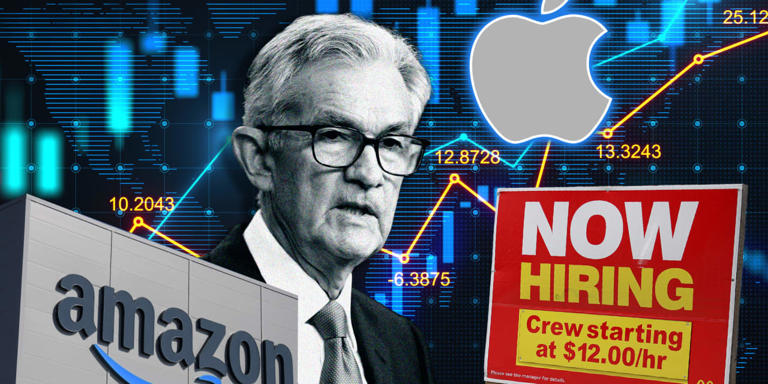The U.S. equity market is once again experiencing wild swings, driven largely by fluctuations in what are often referred to as the “Magnificent Seven” stocks. These seven companies, including tech giants like Alphabet, Microsoft, and Amazon, wield considerable influence over the market. Their stock price movements can trigger cascading effects across various sectors, amplifying volatility and impacting investor sentiment.
Despite this volatility, the market showed signs of resilience last week, with key indices like the S&P 500 and Nasdaq Composite posting their strongest gains since November. This positive momentum was partly fueled by Alphabet’s impressive post-earnings surge, which helped offset earlier declines in the tech sector.
However, underlying concerns persist regarding the earnings growth trajectory of leading tech firms. Thierry Wizman from Macquarie pointed out that recent market fluctuations reflect these apprehensions, underscoring the significance of robust earnings reports from tech giants in shaping market sentiment.
Looking ahead, investors are closely eyeing several upcoming events that could sway market dynamics. These include earnings reports from Amazon and Apple, the Federal Reserve’s highly anticipated interest rate decision, and the release of the April jobs report. Each of these events carries substantial weight in shaping short-term market sentiment and investor confidence.
In particular, the Federal Reserve meeting is garnering significant attention. While no changes in policy rates are expected, investors are keenly interested in any signals regarding the Fed’s stance on inflation. Anna Rathbun from CBIZ Investment Advisory Services suggested that potential adjustments to the Fed’s inflation target could have implications for future monetary policy decisions, including the possibility of rate cuts later in the year.
Meanwhile, concerns persist about the economy’s ability to achieve a “soft” landing amid stubborn inflation rates. Chris Diaz from Brown Advisory expressed skepticism about accurately predicting inflation trends, given its inherent unpredictability. Market heavyweights, including JP Morgan Chase & Co. Chief Executive Jamie Dimon, have cautioned about potential risks to the economic outlook.
Diaz also highlighted a preference for cash, particularly in light of the relatively high yields offered by shorter-term Treasury bills compared to longer-term Treasury notes. However, he warned of potential unease ahead, citing ongoing increases in Treasury supply and the Fed’s reduction of its bond holdings as factors that could contribute to market volatility.
Overall, the current market landscape remains complex and uncertain, with investors navigating through a myriad of factors ranging from earnings performance and inflation data to monetary policy decisions and broader economic indicators. Balancing short-term volatility with long-term investment objectives and risk management strategies remains paramount in such an environment.
